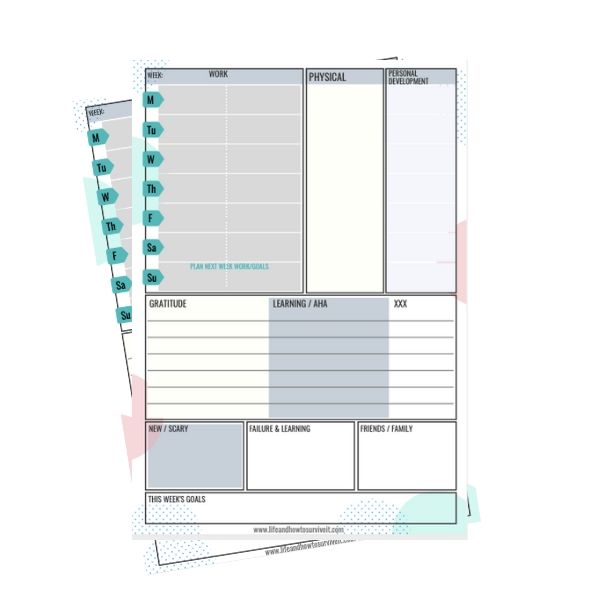How to Practice Gratitude and Really Milk It for All Its Worth
If you’ve ever read anything about personal growth, you’ll already know that practising gratitude is good for you. But gratitude tends to be a brief, fleeting emotion, lasting about as long as ice cream does on a hot summer’s day.
When it comes to gratitude, we need to be more like dolphins. No, I don’t mean swim around with a big smile on your face all day, though that would probably work too. If you want to know how to practise gratitude and get the most benefit from it, you need to work on your memory.

This article may contain affiliate links. As an Associate with Amazon and other companies, we may earn a commission if you click and purchase with one of our links. There’s no extra cost to you. Thanks!
The Importance of Remembering
That’s where dolphins come in. It’s often said that elephants have the best memory, but studies have shown (ref) that the prize currently goes to the rather endearing bottlenose dolphin. Even after 20 years apart, dolphins recognise the sound of their dolphin friends’ whistles. I can barely recognise the sound of someone’s voice that I dated a year ago, never mind remember someone’s voice from 20 years ago.
The biggest problem with gratitude is that it doesn’t last long. Just like the leftovers from last night’s dinner, the thing we were initially so grateful for quickly becomes something we take for granted or feel bored by. Forgotten. Relegated to the vast wasteland of more ‘stuff’.
But there’s a lot more juice to be squeezed out of every experience, every item we buy or get, every positive turn of events that crosses our paths. And to get even the last drops out, we need to use our memory.
From Grateful to Ungrateful in 60 Seconds
Here’s an example. A few years ago, due to my own stupidity and poor choices, I lost everything I had and ended up back up at square one. A generous family member bought me a little old van, something I urgently needed to get my wheelchair-bound dog to the place where I could walk him every day.
I was incredibly grateful for this wonderful, touching gesture. I was so happy, being able to give my dog a better quality of life in his final years. He was a big dog, with an even bigger wheelchair. A car just wasn’t going to cut it.
My gratitude for the van in fact lasted a long time, certainly longer than 60 seconds. Every day I used it, I loved the fact that I didn’t have to dismantle the wheelchair to pack it in the back of a car. From time to time though, I hankered after the enormous pick-up truck I’d had before I lost everything. I missed the electric windows, the comfort, the cruise control (and sadly yes, the sense of lording it over the roads).
Ungrateful? Yep. It was time to give myself a kick up the arse (arse: a word we Brits use to describe the derriere, bottom, bum. Ass to most of you).
In my defence, this tendency to want something bigger or better than we already have is a pretty common phenomenon. There are though some simple techniques we can use to avoid this trap and stay grateful – or at least, be grateful for longer.
Extending a Sense of Gratitude – Remember How You Felt
In the case of my van, I thought back to how I felt when my uncle bought me the vehicle. I remembered the sheer joy of the newfound freedom of having wheels again.
I reminded myself of what life was like just before I got the van, the relief of not having to ask family members to borrow their cars anymore.
It made a really big difference to my life at the time, but we get used to things very quickly. Before we know it, we stop being grateful for something we have and we start looking for something better to replace it.
Thankfully, there are some other handy techniques we can use to beat this.

Compare and Contrast
In each stage of our lives, as we get increasingly more comfortable. We forget what we used to have and how life used to be. We only tend to look forwards, fantasising about how to get a bigger house where we can put more stuff, some of which we won’t even use.
Imagine you were 20 again. What was life like when you were 20? I was in cold, drafty, shared student housing, surrounded by other peoples’ dirty dishes and poor personal hygiene. Yes, I was also having the time of my life so for the most part, I was able to ignore the worst offences.
However, now that I’m much, much further on in life, just remembering those times makes me feel so grateful for my current home. No longer do I find mouldy blocks of butter in the fridge, stinky piles of clothes left abandoned for weeks in every corner of the bathroom, and toilets that frankly defy description in any language.
How does this help? Rather than fantasising about a bigger / better / flashier house, I appreciate the one I’m in.
I’m not suggesting we live in the past, or the future for that matter. Instead, being mindful of what we have now compared to what we had at a poorer time in our lives, can help us be more grateful.
Distinguish What You Need From What You Want
It’s a fact: we live in a time of plenty. You might be looking at your own bank balance and saying “I don’t think so mate!” but comparatively speaking, we do. At no point in history did we live as long, or as wealthily as we do now (at least in the developed countries).
The downside of this is that we’ve become wasteful, entitled and ungrateful.
The things we actually need to survive – or even to live well – are few. Nobody needs yet another pair of jeans, a foreign holiday, or more chocolate.
The things most of us take for granted as needs aren’t even available to people in some parts of the world. We forget that we can in fact manage just fine with far less. It seems the more we have, the more we want.
One of my favourite authors, Ryan Holiday, makes this very point in his book, The Daily Stoic:
“When we become successful, we forget how strong we used to be. We are so used to what we have, we half believe we’d die without it. Of course, this is just the comfort talking. In the days of the world wars, our parents and grandparents made do with rationed gas, butter, and electricity. They were fine, just as you have been fine when you had less.
— Ryan Holiday
And so, on to a gratitude technique you are more than likely familiar with: the gratitude journal.
A Gratitude Journal
A friend recently asked me, “But does a gratitude journal really work?”.
I had been singing the praises of noting things to be grateful for every day in my journal. I can honestly say that this one activity has an incredibly powerful, compounding effect.
To be clear, I don’t keep a gratitude journal per se. I keep an Accountability Journal, which has a large section dedicated to gratitude. I’m super tidy and organised, and I dislike lots of things all around me, cluttering the place up. For any of you ‘journalers’ out there, you may love your shelves full of beautiful planners and sleek journals. For me though, a simple sheet of paper, pre-printed with different sections, keeps me on track for a whole week at a time.
Every day, I note down things that I’m grateful for, starting with whatever comes to mind when I sit at my desk each morning and start the day off with a coffee in one hand, pen in the other.
I add to the ‘gratitude’ section as I go through the day, and then each day after that for the rest of the week I rinse and repeat.
So how can we use a gratitude journal, or in my case, a simple but efficient printed piece of paper, to get more out of gratitude?
A gratitude journal makes us stop and reflect upon the things we have to be grateful for, giving us more opportunities to appreciate them properly. They might be little things, like a sunny break in the clouds – believe me, living in overcast England, it helps to learn to be grateful for little chinks of sunlight. Or, it could be something big, like a van.
By writing things down, our brains have longer to savour the goodness of whatever it is we’re grateful for. A journal of all the things we’re grateful for also makes for a powerful source of ‘feel good’ reading if we ever need a bit of a pick-me-up. Just look back over a week’s worth of entries and the skies seem brighter!
Reading back through your gratitude journal is like looking at an old photo album of your childhood. When you flick through the photos, you come across images of things you’d forgotten about, you’re taken back there again.
A gratitude journal can do the same thing: you read about something you were grateful for and you remember it, experience it, all over again. You feel grateful for that thing again. Squeeze out even more of that juice!
So think back, dive into the murky depths of your memory: what things in your life can you revive some gratitude for?


